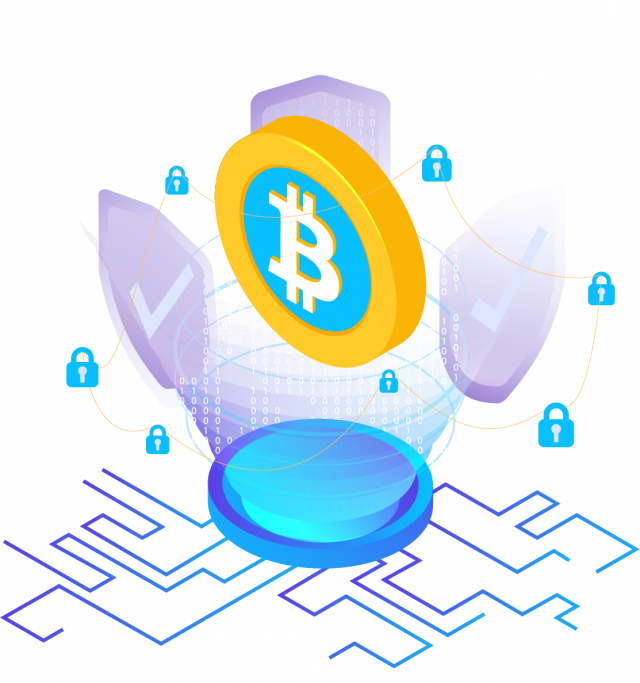Discover The Blockchain-Based Solution for Financial Services
Explore Unlimited Possibilities with The Help of Jayden Wei
A financial expert and crypto enthusiasts with the goal of building and enhancing the Metaverse for an innovative future of finance.
Who is Jayden Wei?
Jayden Wei has been in the crypto space since 2014. He established what is now the largest crowdfunding site in the Asia-Pacific region for cryptocurrencies in 2017. He decided to invest in DeFi last year because, at the time, he saw DeFi as a legitimate application of blockchain technology with enormous potential.
On top of that, Jayden Wei is a passionate and well-known crypto activist, having played a pivotal part in a number of cryptocurrency initiatives and serving as a trailblazer for a wide range of open-source endeavors. His passion is for fostering businesses while they experience rapid expansion. A man of action and excitement, he seeks to surpass the bounds of all elements in his pursuit of success. He has held various executive positions at different firms, where he provided his technological perspective and experience before entering the crypto world.


What is DeFi According to Jayden Wei?
Jayden Wei stated that DeFi, short for “decentralized finance,” is a system of managing financial transactions that rely on distributed ledgers and digital currencies like bitcoin. DeFi aspires to democratize finance by substituting decentralized peer-to-peer interactions for traditional banking, lending, mortgages, and other financial services. By eliminating intermediaries and gatekeepers and replacing them with common people engaged in peer-to-peer exchanges, DeFi poses a serious challenge to the current centralized financial system. DeFi is included in both straightforward and intricate monetary dealings. Cryptocurrencies like Bitcoin (BTC) and Ethereum (ETH) rely on decentralized applications (Dapps) and protocols to process transactions (ETH).
Despite Bitcoin’s widespread adoption, the vast majority of the current decentralized applications (Dapps) and protocols are built on Ethereum due to its flexibility and adaptability.
DeFi Ecosystem
What Are The Main Components Listed By Jayden Wei of A DeFi Ecosystem?
Learn more about DeFi ecosystem from Jayden Wei.
Lending and Borrowing
Investors can earn interest on their fiat money deposits through a decentralized application in DeFi lending. In exchange for access to the network's lending services, borrowers agree to repay their principal plus interest on or before the due date. Using smart contracts eliminates the requirement for a third party to facilitate the loan's execution and the accompanying expenses normally involved with doing so. Due to the absence of lengthy paperwork processing, getting a loan through DeFi is considerably quicker than through a conventional banking institution. Peer-to-peer lending provides additional advantages since borrowers can get credit at cheaper interest rates than they would be able to get from a traditional financial institution and because long-term investors can profit from the loan's interest payments.
Stablecoins
To prevent their value from fluctuating too much, stablecoins are linked to an underlying asset such as a fiat currency, an exchange-traded commodity, or even another cryptocurrency, as stated by Jayden Wei. Stablecoins offer a less volatile alternative to cryptocurrencies like Bitcoin and Ether, which are notorious for their price swings. Trade-in products and services, faster and cheaper international transactions, decentralized insurance solutions, derivatives contracts, and lending and borrowing are some potential applications for stablecoins. In addition, Jayden Wei highlighted that when a country's economy is faltering, and the dollar value of its currency is falling, many people switch to stablecoins, exchanging their fiat money for coins pegged to the currency of another country to protect their wealth and security. There are two main types of stablecoins; algorithmic stablecoins and non-algorithmic stablecoins.
Decentralized Exchanges (DEX)
Decentralized Exchanges are cryptocurrency exchanges that connect buyers and sellers and allow users to make transactions via a peer-to-peer network. They allow you to exchange different cryptocurrencies. However, you can not buy digital assets with fiat money, nor can you trade fiat or make withdrawals into your bank account with decentralized exchanges. Some of the benefits of DEXs include the lack of intermediaries, the prevention of market manipulation, and anonymity. They also offer faster and cheaper transactions than centralized exchanges.
Derivatives
Derivatives in the decentralized finance world are contracts which values are derived from the performance of an underlying financial asset. Commodities, equities, interest rates, bonds, currencies, market indices, and more are all examples of underlying assets. One major distinction between DeFi and CeFi derivatives is that in the former case, anyone can issue a contract backed by an asset in the DeFi derivative markets, but this is not possible with CeFi derivatives. DeFi derivatives also have the added benefit of not requiring users to verify their identity or eligibility, making them more widely available, according to Jayden Wei.

Learn More to Enjoy Extensive Returns and Profits!
What is Jayden Wei Net Worth?
Jayden Wei, the co-owner of OGBC is worth 10 million. However, Jayden Wei’s net worth peaked at 20 million in 2022.
One can invest like Jayden Wei in DeFi in a number of different ways. The quickest and easiest way to get familiar with DeFi is to purchase any coin that employs the protocol. Investing in a coin supported by DeFi gives you access to the vast majority of the DeFi market.
Putting your cryptocurrencies into direct deposit with a DeFi lending company will allow you to earn interest for your funds. The rate of interest given on deposits might be set, meaning it would not fluctuate with the market, or variable, meaning it will fluctuate based on the amount of time the money is locked away.
Furthermore, ‘Yield farming’ is a common practice on the many DeFi platforms due to the huge demand for deposits. In order to optimize their earnings, yield farmers will transfer their deposits to a different platform if that platform begins offering a more attractive incentive. With incentives often changing, high-yield farmers are continuously moving their money around, according to Jayden Wei.